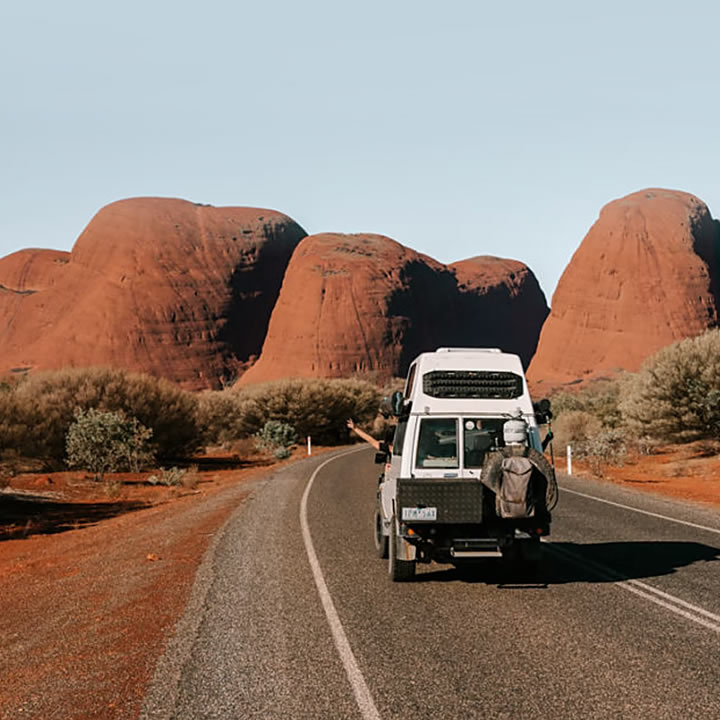The last two years have seen significant travel bans and restrictions across the globe while the world tries to get a handle on a global pandemic. This has resulted in a drastic drop in adventure trips to foreign destinations.
But just because you can’t travel to exotic destinations doesn’t mean you can’t explore the magnificent scenery your own country has to offer! Many people often forget that investing in an annual travel insurance package covers them when they’re traveling locally.
Safety Tips for Your Local Adventure
Surprisingly enough, it’s not that uncommon to run into people who have spent thousands of dollars exploring different countries but have never visited the greater parts of Australia!
If you fall into this category, it may be time to consider a trip around Australia, perhaps even a drive through the Outback!
Before you set out on your adventure though, there are a few safety factors you should take into consideration to ensure you have an amazing holiday!
Invest in Travel Insurance
One of the best reasons to invest in travel insurance is the coverage of medical emergencies. While travel insurance also covers lost luggage and travel delays, those points might not be crucial if you’re traveling locally.
It’s not that relevant if you’re driving yourself instead of flying. However, having adequate coverage in the event of a medical emergency is always a wise investment!
Never Travel Alone
We’ve all heard those horror stories of the man who went on a camping trip by himself and was never seen again. While you might need a break from the rat race, it’s never a good idea to travel alone.
Either make it a family trip or plan a group adventure. Find a few of your closest friends or colleagues and map out a travel plan.
Share the Travel Plan and Stick to It!
Always share your travel plan with a reliable person who isn’t going on the trip. If the group gets lost or doesn’t check in on time, someone can send out a search party if need be.
Being adventurous may be fun but rather don’t deviate from the plan. Especially in places like the Outback, it’s best someone always knows where you’re headed.
Stock-up on Essentials
Living off the land might seem exciting when you’re listening to your grandfather’s campfire stories. Chances are though, the average city bloke wouldn’t know where to start solving the problem if the vehicle breaks down and the food’s finished!
Some essentials to never leave home without include the following:
- Enough food and water for everyone on the trip to last at least double the time you plan to be away. This should suffice for eventualities like getting lost or a vehicle breaking down.
- Extra fuel for your vehicle in the event that you get lost.
- Emergency tools for minor vehicle repairs.
- Sunscreen and hats – the Australian sun can be relentless!
- Comfortable shoes, suitable for the terrain you’re planning to visit.
- Pack simple emergency items like matches and extra blankets.
- If you’re traveling into an area where there’s likely to be no phone reception, it’s important to invest in a satellite phone or radiophone.
- Whether or not you’re planning to do any climbing, always pack a few strong, sturdy ropes. They may come in handy tying down loose items during a storm!
- Pack a first aid kit for every vehicle, that contains all of the basics. Even add eye drops because driving on dirt roads in Australia’s wilderness can leave you with burning eyes.
Familiarise Yourself with the Area
Read up on the area you’re planning to visit so you have an idea of what to expect. Make sure you know where the nearest hospital and police station are. Remember that the number to call for emergencies is 000 (triple zero). Make sure the kids on the trip also know this number.
Be Mindful of Wildlife
You might not be the only one traveling on the roads, no matter how remote they are! Always keep an eye out for wildlife that often strays onto the roads.
The wild animals will most likely be most active during the times around sunrise and sunset. If possible, avoid driving at these times to minimize any encounters with dangerous animals or accidentally hitting one with your car.
Look Out for Red & Yellow Flags When Swimming
If your trip involves swimming on one of Australia’s beautiful beaches, always stay between the red and yellow flags. These flags show you where it’s safe to swim and where a lifeguard will be on duty.
Final Thought
A rule of thumb many travelers like to live by is, “Always pack as if you’re expecting the worst.” Following that rule will have you prepared for many different eventualities which should keep you safe until help arrives.
Other than stocking up on the right supplies, another rule is to always take a camera with you. That way you’ll be able to capture anything spectacular you come across, even while you’re waiting for help to arrive.
You may just end up with pictures of your friends and family having a wonderful time by making the best of a bad situation.

